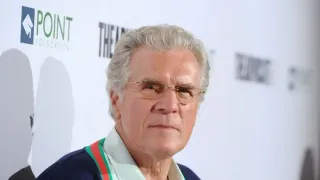January 3, 2021
Millennial Money: 10 Money Insights Distilled over 25 Years
Gregory Karp, NerdWallet READ TIME: 4 MIN.
The importance of money has less to do with affording the newest iPhone or measuring career success, and far more to do with the core of being human: freedom, ego, stress and relationships.
How we use and think about money – not just accumulating lots of it – literally can determine our happiness during the roughly 30,000 days many of us are privileged to be alive.
Those are a few of the big-picture insights I learned in 25 years of writing about money.
In 1995, some of the last millennials were being born, a jury said O.J. Simpson was not guilty and "Toy Story" played in theaters.
It's also the year I became business news editor at a daily newspaper in Pennsylvania, where I started editing guest columns written by local financial planners and stock brokers. I quickly became fascinated with the baffling world of personal finance.
How could I graduate from college – with a business degree, no less – and still not know the basics of how money works for real people in the real world? Saving, investing, taxes, credit and insurance – it's almost like personal finance was confusing on purpose.
Sometimes, it is.
I had the privilege as a financial journalist to figure out some of it by interviewing smart people about money for the next 25 years – through the dot-com bubble of 2001, the housing bubble of 2008 and the pandemic of 2020.
Here are 10 things I learned.
1. IT WILL RAIN
If the COVID-19 pandemic taught us anything, it's that bad stuff happens, no matter who you are. A rainy-day fund is fundamental to keep us financially safer in case of an unexpected large expense, job loss or even globe-ravaging viruses. Start with $500 squirreled away and aim to build it to three to six months of living expenses. Breadwinners die, people get sick and cars crash. You also need the right insurance to keep you from financial ruin.
2. MARKETING MATTERS
Advertising existed 25 years ago, but not on a computer in your pocket that you look at 100 times a day. And not with ads targeting you as an individual. Temptation to buy has never been greater thanks to the evolution of technology and social media.
3. SCORE A GOAL
The antidote to the poison of constant marketing is having a reason to say no to temptations. You do that by establishing financial goals. That doesn't just mean the far-off "saving for retirement." It could mean saving for a trip to the Bahamas. You know, when people get back to traveling to the Bahamas.
4. WHERE GOALS LIVE
To help set goals, review your calendar and bank statements. Where you spend your time and money is who you are. Time and money are what you change to become who you want to be.
5. BUDGETING IS OVERRATED
There, I said it. But if you're not going to create a household budget, at least regularly examine your past spending and categorize it. Financial websites and apps can help. Money leaks will be obvious, as will ideas for intentional spending.
6. THE LEDGER HAS TWO SIDES
You can't out-earn dumb spending and you can't nickel-and-dime your way to prosperity. When it comes to money management, you have income and outgo. The rest is just details. On the other hand, it really helps to know some details.
7. TIME-FOR-MONEY IS A FAIL
Most people cannot get ahead solely by trading their time for money at a job. Instead, your money needs to make its own money. You can't do that with minuscule bank interest anymore, so it means investing.
8. WHERE CREDIT'S DUE
In 1995, you couldn't even look up your credit score or see your credit reports. Now, you can and should. Poor credit means you could be denied for not only a loan or credit card but also for a job or an account with the electric company to turn the lights on.
9. RIDE TO PROSPERITY
If you're vigilant with only one purchase in your life, make it your next car. New cars, especially luxury brands, are wealth-repellent to all but the richest among us. That's because of high new-car prices and their wicked depreciation, not to mention interest if you're financing it. Buying used is far better advice now than in 1995, when that often meant "buying someone else's problems." Today, used cars are far more dependable.
10. IT'S UNFAIR
Money smarts are insufficient to overcome some financial woes: Stagnant wages coupled with rocketing costs for health care, housing and education, to name a few. And some careers simply don't pay as much as others, despite requiring similar skills. That leads to different money problems and opportunities for different people. And yes, economic inequities also exist by race and sex. That means those with extra can be sloppier with money. Those living closer to the margin? They are forced to make better money decisions every day.
__________________________________-
This column was provided to The Associated Press by the personal finance website NerdWallet. Gregory Karp is a writer at NerdWallet. Email: [email protected]. Twitter: @spendingsmart.






